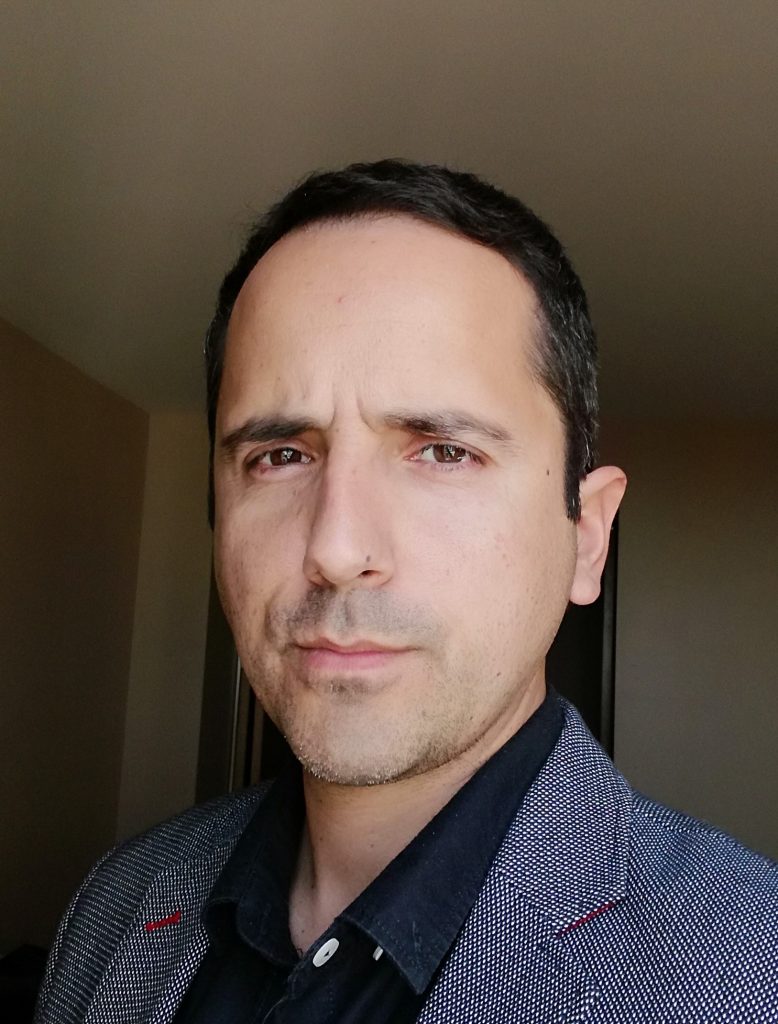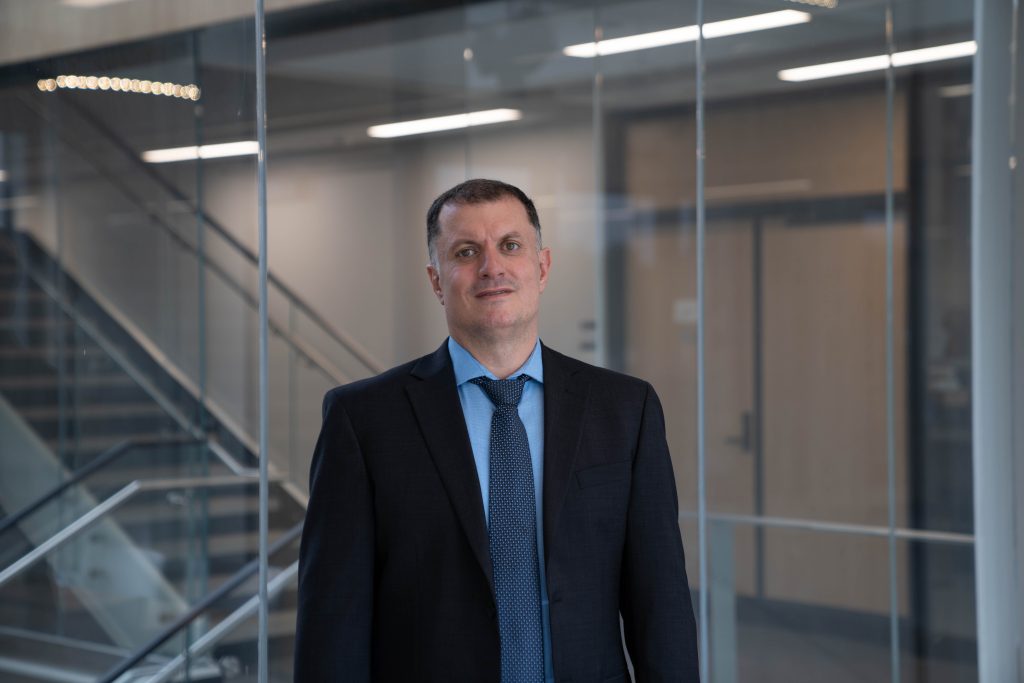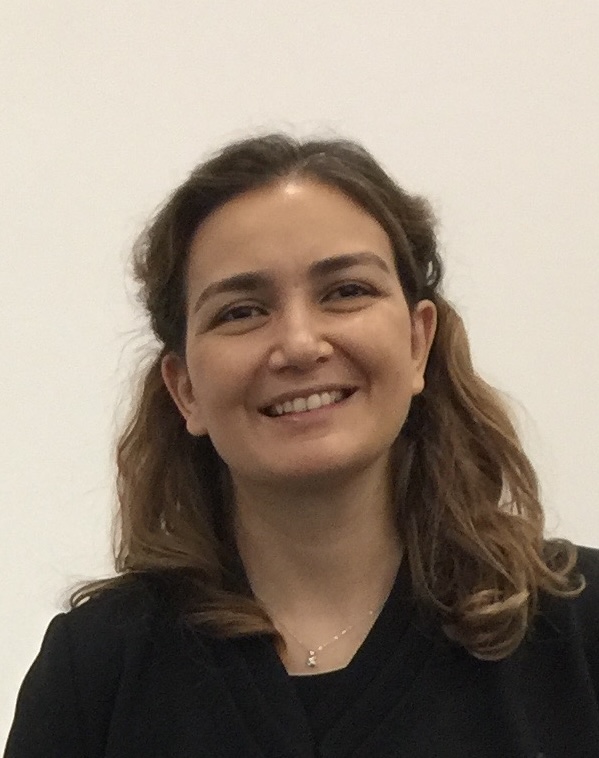Keynotes

João Pedro
Title: Reliability Challenges and Opportunities in Next-Generation Optical Networks
Abstract: Optical networks have been an (often underestimated) enabler of our hyper-connected societies, as they fulfil the key role of reliably carrying massive amounts of data across medium to long distances. The relentless demand for traffic and the potential impact of massive AI workloads on inter data center traffic requirements, are setting the stage for even higher capacity needs. However, since we already ripped most of the spectral efficiency improvements of the “coherent revolution” that started back in 2010, this time around more capacity will mean more spectrum. Exploiting wideband transmission is an appealing approach to postpone costly roll out of new optical fibers, particularly for service providers that are fiber constrained. This talk will overview solutions to exploit more transmission bands, highlighting the associated technical challenges, with a specific focus on reliability, and discussing potential mitigation strategies. Moreover, it will also address recent developments on using machine learning techniques and real-time monitoring data for early failure detection and proactive restoration, which can play an important role in cost-effectively improving service availability in optical networks.
Short Bio: João Pedro holds a M.Sc. and Ph.D. degrees in Electrical and Computer Engineering from Instituto Superior Técnico (IST), University of Lisbon, Portugal. He was a research engineer and a system architect at Nokia Siemens Networks and Coriant and he is currently a senior principal engineer at Infinera, being responsible for the design of capacity planning algorithms for next-generation optical networks and supporting performance and techno-economic investigations of future-looking network architectures. He holds 13 patent applications and has co-authored over 300 publications in international conferences and journals. He has also participated in several EU-funded projects and has been a lecturer of courses on network planning and transport networks. His current research interests include high-capacity and reliable optical networks, flexible metro-aggregation architectures, routing and spectrum assignment, multilayer optimization and machine learning applications. He is also a permanent staff member of Instituto de Telecomunicações, a senior member of the IEEE and a member of OPTICA.

Kohei Shiomoto
Title: Data-driven network management
Abstract: Data-driven network management has been an active research filed for more than past 10 years. Mathematical methods such as machine learning enables data-driven network management. In particular, deep learning has developed rapidly, and it is being applied not only to image, audio, and natural language processing, but also to various industrial fields, and ICT system operation management is no exception. In this talk, after first explaining the architecture and management of modern computer networks, we will cover the mathematical methods that support data-driven network management, including deep learning and other machine learning methods. We will then cover the research trends related to data-driven management, including network softwarization and network security.
Short Bio: Kohei Shiomoto is a Professor, Tokyo City University, Tokyo Japan. Since joining NTT Laboratories in 1989, he has been engaged in research and development in the data communications industry on high-speed computer network architecture, traffic management, and network analysis to create innovative technologies for the Internet, mobile, and cloud computing. From 1996 to 1997, he was a visiting scholar at Washington University in St. Louis, MO, USA. In 2017, he joined Tokyo City University to engage in research and education on data science and computer networking. Current research interests include data mining for network management, human flow analysis, cloud computing and blockchain. He has published more than 70 academic papers, 130 refereed international conference papers, and 6 RFCs in IETF. He served as Guest Co-Editor for a series of special issues established in IEEE Transactions on Network and Service Management. He has served in various roles organizing IEEE ComSoc conferences including IEEE NOMS, IEEE IM, and IEEE NetSoft. He served as the lead Series editor for the Network Softwarization and Management Series in IEEE Communications Magazine, 2018-2021. He is a Fellow of the Institute of Electronics, Information and Communication Engineers (IEICE), a Senior Member of the IEEE, and a member of the ACM and the Information Processing Society of Japan (IPSJ).

Abdallah Shami
Title: ML-Powered UAV Condition Monitoring: Optimizing Reliability, Communication, and Edge Intelligence
Abstract: Unmanned Aerial Vehicles (UAVs) are rapidly becoming integral to the infrastructure of emerging smart cities, enabling diverse applications ranging from surveillance and logistics to infrastructure inspection. However, the deployment of UAVs at scale hinges on their operational reliability and the efficiency of supporting communication and computation systems. This keynote explores recent advancements in machine learning-based UAV condition monitoring frameworks, emphasizing the need for end-to-end optimization across the sensing, processing, and communication architecture.
We delve into techniques for real-time rotor fault detection using vibration signal analysis, efficient feature extraction pipelines accelerated through low-level optimization and parallelism, and strategies for drastically reducing network resource utilization without sacrificing model accuracy. Furthermore, we present a novel deep learning approach to signal companding that reduces power consumption in sensor nodes by minimizing the Peak-to-Average Power Ratio (PAPR) of vibration waveforms—thus extending the viability of UAV monitoring in constrained environments.
By integrating principles from signal processing, embedded ML, and communication systems design, this talk outlines a path forward for building scalable, power-aware, and network-efficient UAV monitoring solutions that meet the reliability demands of smart urban ecosystems.
Bio: Abdallah Shami (Fellow IEEE) is currently a Professor and Chair of the Department of Electrical and Computer Engineering, Western University, London, ON, Canada, where he is also the Director of the Optimized Computing and Communications Laboratory. Dr. Shami has chaired key symposia for the IEEE GLOBECOM, IEEE International Conference on Communications, and IEEE International Conference on Computing, Networking and Communications. He was the elected Chair for the IEEE Communications Society Technical Committee on Communications Software and the IEEE London Ontario Section Chair. He is currently an Associate Editor of the IEEE Transactions on Information Forensics and Security, IEEE Transactions on Network and Service Management, and IEEE Communications Surveys and Tutorials journals. Dr. Shami is the Chair of IEEE Region 7 Publications and Communications Committee. Dr. Shami is a Fellow of IEEE, a Fellow of the Canadian Academy of Engineering (CAE), and a Fellow of the Engineering Institute of Canada (EIC).

Cicek Cavdar
Title: Forget More Towers: URLLC Needs Satellites and HAPs
Talk Summary: Today’s terrestrial networks, despite their advancements, fall short when it comes to delivering truly ultra-reliable low-latency communication (URLLC) services—especially in mission-critical, remote, or disaster-prone environments. In this keynote, I will demonstrate the inherent vulnerabilities and limitations of purely ground-based networks in meeting the stringent demands of URLLC.
Then, I will introduce a transformative solution: an integrated architecture combining terrestrial infrastructure with Low Earth Orbit (LEO) satellites and High-Altitude Platforms (HAPs). By leveraging the unique strengths of each layer, we can unlock seamless, resilient, and low-latency connectivity—anywhere, anytime. This is not just an upgrade—it’s a paradigm shift for 6G and beyond.
Short Bio: Cicek Cavdar is a Professor at KTH Royal Institute of Technology in Sweden, where she leads the “Intelligent Network Systems” research group; serves as vice-head of the Communication Systems Division and as the director of the newly established research center on satellite communications: SMART 6GSAT composed of 21 partners from Swedish satellite and telecommunication industry together with research institutes. She has played a pivotal role in numerous European projects, particularly in aerospace communications and sustainable network technologies. Since 2013, Cicek has led several EU projects focused on sustainability and green communications, including “5GrEEn,” SooGREEN, and AI4Green. Notably, AI4Green received the Eureka Innovations Award and the Celtic Excellence Award in 2024. In aerospace communications, she has coordinated industry-university collaborative projects since 2016, such as “ICARO-EU” and “6G-SKY: 6G for Connected Sky.” Currently she is leading RAI-6Green: Robust and AI Native 6G Green Communications Prohect. Her research interests include the integration of non-terrestrial and terrestrial networks, edge/cloud computing, ultra-reliable low latency wireless communications, sustainability, and AI-assisted green network management.
Co-Sponsored

DRCN 2025
Innovation
contact us
drcn2025@gmail.com
No.818 Fenghua Road, Ningbo, Zhejiang, China 315211